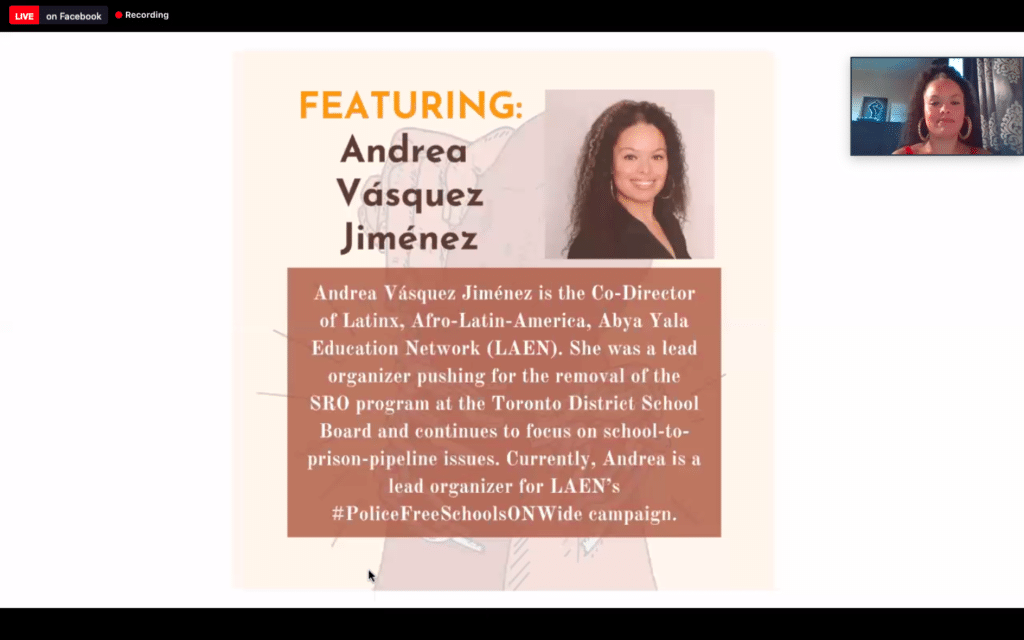Monika Sidhu — A Peel Region group focused on social justice held an online workshop this week to help people understand what abolition means when it comes to policing.
Acknowledging that while there have been calls to “abolish” and “defund” the police, many people have difficulty wrapping their heads around the idea, Climate Justice Peel held the session to help people understand this new discussion.
“We firmly believe that abolition is climate justice,” said Savroop Shergill, an organizer with Climate Justice Peel.
One of the first slides of the presentation read “abolition is about building life-affirming relationships and not just getting rid of cops and prisons overnight.”
Calls to “defund the police” have been growing across the U.S. and Canada since George Floyd, a Black man was killed when a Minneapolis police officer kneeled on his neck for nearly nine minutes.
Captured on video, Floyd’s May 25, 2020 death sparked a surge of support for the Black Lives Matter movement. It put a spotlight on the long-existing issue of systemic anti-Black racism and police brutality.
Abolition advocates say it is time to decrease funding to police services and dedicate more money to areas like education and social services. In fact, Black Lives Matter Toronto just released their own website outlining defunding of police services and “re-imagining a new system.”
The Tuesday night “teach-in” aimed to educate participants about the history of policing, how policing has proven to be harmful to many, and alternatives to policing. The teach-in, which appeared on Zoom, was also accompanied by a “collective visioning” exercise for the attendees and a question and answer segment.
The online session included a breakdown of the Peel Police budget and a summary of reported acts of police violence towards members of the Peel community. Climate Justice Peel also emphasized the issue of policing mental health, which has been an ongoing controversy highlighted by the deaths of 26-year-old D’Andre Campbell and recently 62-year-old Ejaz Choudry.
Climate Justice Peel’s advocacy on defunding the police included looking at the Peel police budget. They pointed out the 5.4 per cent increase in the budget since 2019 putting the total amount at $445.8 million. The group suggests reallocating funds into community care, decent jobs for all, youth programming, education and transformative justice.
In response to the calls, Mississauga News reported that Peel Regional Police Chief Nishan Duraiappah said “change is coming,” but said reducing the police budget would result in a reduction of officers, so defunding police must be given “thoughtful consideration.”
Joining the teach-in as a guest speaker was Andrea Vásquez Jiménez, the Co-Director of the Latinx, Afro-Latin-America, Abya Yala Education Network (LAEN). Vásquez Jiménez and co-director Silvia Argentina Arauz, have been asking for the removal of police in all Ontario schools since the November 2017 vote to remove school resource officers (SRO) from the Toronto District School Board. Since then, LAEN has been working for Ontario wide change, officially launching the campaign #PoliceFreeSchoolsONWide in March 2020.

“When I’m talking about police-free schools I’m also talking about police-free transit, police-free housing,” says Vásquez Jiménez during the talk. She says getting police out of schools is a seed to getting police out of the community.
Changes like the recent removal of police from the Hamilton-Wentworth District School Board is due to years of organizing efforts from community groups, she says. Climate Justice Peel cited this move as an example of the change that can come through abolitionist organizing.
“It really is about local organizing and connecting with other folks in the community to continuously place pressure so that we demand change of these systems and ensure that elected officials create the conditions as well to ensure that we have life-affirming educational systems.”
Vásquez Jiménez says this existing community work tied in with recent additional pressures from people in the community is a contributing factor in seeing change.
“We need action, we’re not waiting on any more data, we’re not waiting on any more reports, we need the systems changed now.”
For those who are completely new to the idea of abolition, Vásquez Jiménez hopes that they left the teach-in with “a shift in their mindsets and a shift in their hearts.”

Comments are closed, but trackbacks and pingbacks are open.